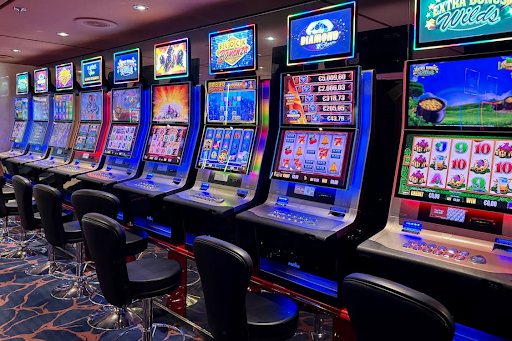When most people think of casinos, the first images that come to mind are roulette wheels spinning, cards being dealt, and chips stacked high on tables. Yet, in the world of online gaming, a new star has emerged—the live casino game show. These interactive broadcasts combine traditional gaming with entertainment, bringing in elements of drama, humor, and narrative that transform an ordinary bet into an unforgettable performance.
At the center of this transformation are the hosts. More than just dealers, they are performers, storytellers, and guides who keep audiences hooked. By borrowing techniques from television and theater, live casino hosts create immersive worlds that appeal to casual viewers and seasoned players alike.
The Rise of Game Show-Style Live Casinos
Traditional online casino games, while popular, often lack the atmosphere of a physical casino. That’s where live casinos stepped in, bridging the gap by streaming real dealers from professional studios. Game show formats took it a step further, blending gambling with TV-style entertainment.
Titles like Crazy Time, Dream Catcher, and Monopoly Live aren’t just games—they’re experiences. Instead of focusing solely on numbers and payouts, they build excitement through visuals, sound effects, and, most importantly, charismatic hosts who guide the action.
The Host as Storyteller
What sets game show-style live casinos apart is the narrative element. Each spin of the wheel or roll of the dice becomes part of a larger story, led by the host. Unlike a computer interface, the host adds personality and context.
They may joke with players, build suspense before a big reveal, or celebrate a win with theatrical flair. This narrative structure mirrors traditional storytelling techniques: a beginning (setting the stage), rising tension (anticipating results), climax (the winning outcome), and resolution (interacting with players).
The drama isn’t scripted word for word, but the rhythm of the game ensures a natural story arc.
Creating Drama Through Atmosphere
A good host understands that atmosphere is everything. Lighting, sound, and even body language are tools to heighten anticipation. For example:
- Pacing: Drawing out a spin slowly keeps players on the edge of their seats.
- Tone of voice: Rising energy signals something exciting is about to happen.
- Interaction: Calling out player names or responding to chat makes the experience feel personal and dynamic.
This blend of showmanship and interactivity gives players a sense of being part of something bigger than a simple bet.
The Performance Element
Hosting a live casino game show is not unlike acting on stage. The host must balance professionalism with entertainment, ensuring the rules are followed while keeping the energy high.
- Authenticity: Players can sense when a host is genuinely enjoying themselves.
- Persona: Each host often develops a distinct personality—some playful, some dramatic, some sophisticated.
- Consistency: Just like actors staying in character, hosts must maintain the tone throughout the game.
This performance element transforms live casinos into hybrid experiences—half game, half theater.
Audience Engagement: The Interactive Twist
One of the biggest differences between traditional game shows and live casino game shows is audience interaction. Thanks to real-time chat features, players can communicate directly with the host, creating a two-way experience.
When a host greets players by name or reacts to their comments, it breaks down the digital barrier. Suddenly, the player is no longer just watching—they are participating in a shared story. This interactivity is a crucial part of why live casino game shows have surged in popularity.
The Psychology of Suspense and Reward
Storytelling is about more than entertainment—it also taps into psychology. Human brains are wired to respond to suspense and resolution. In live casino game shows, every spin or draw creates a cycle of anticipation and outcome.
The host amplifies this cycle. By adding verbal cues, dramatic pauses, and celebratory reactions, they heighten the emotional impact of wins and soften the sting of losses. This careful balance keeps players engaged longer without making the experience feel mechanical.
Beyond the Game: Building Community
Perhaps the most underrated aspect of storytelling in live casinos is community. Regular players often return to specific hosts because of their style, humor, or energy. Over time, a kind of “fan base” emerges, similar to audiences following favorite TV presenters or streamers.
This sense of familiarity encourages loyalty. Players don’t just log in for the game—they log in for the host and the story they help create.
Final Thoughts
Live casino game shows have transformed online gaming by blending gambling with narrative, performance, and interaction. At the heart of it all is the host—a modern-day storyteller who uses voice, personality, and charisma to create drama and engagement.
By turning each spin, deal, or roll into part of a larger story, hosts elevate live casinos beyond pure chance. They turn ordinary gameplay into a performance where players are both audience and participants. And just like any good story, it’s the characters—the hosts—that keep people coming back for more.

